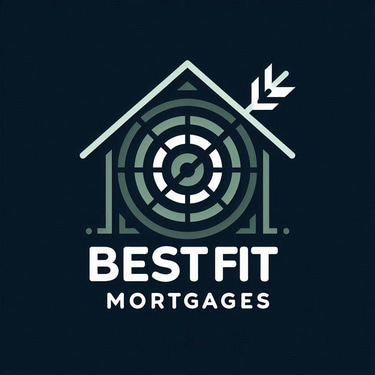Buy To Let
Your property, your future. Our mortgages, your success.


Free no obligation initial consultation
A buy-to-let mortgage can be a smart way to finance your property investment. If you're considering this option, our comprehensive guide is here to help. Explore everything you need to know about buy-to-let mortgages, and don’t hesitate to reach out to us for tailored advice.
What is a Buy-to-Let Mortgage?
A buy-to-let mortgage is designed for landlords and investors looking to purchase rental properties. Instead of paying the full price upfront, you can borrow from a financial institution and repay the loan with interest over time. This allows you to generate rental income and build equity in the property, provided its value remains stable or increases.
Who qualifies for a Buy-to-Let Mortgage?
Buy-to-let mortgages are typically available to individuals over 18 who meet specific lender criteria. These criteria are usually stricter than those for residential mortgages. Lenders will require proof of income, and the rent generated by the property must cover at least 125% of the mortgage payments, or 145% for higher-rate taxpayers. A minimum deposit of 20-25% is also standard.
Benefits of Investing in Buy-to-Let Property:
Investing in a buy-to-let property can provide a steady income and potential long-term capital appreciation. Key benefits include:
Capital Appreciation: The property’s value may increase over time, offering potential financial gains.
Regular Income: Rental payments can provide consistent monthly income, supporting other earnings or retirement plans.
Moderate Entry Costs: A buy-to-let mortgage allows you to invest with a smaller upfront capital outlay.
Investment Flexibility: You can choose the duration of your investment, whether it’s a single property or a diversified portfolio.
How Much Can You Borrow?
The amount you can borrow depends on the expected rental income, the property’s value, and location. Lenders also consider factors like your credit score and deposit size.
How Does a Buy-to-Let Mortgage Work?
Buy-to-let mortgages function similarly to residential mortgages but typically require larger deposits and have higher interest rates. Lenders assess your repayment ability based on rental income and other financial factors, including the loan-to-value (LTV) ratio, which generally needs to be 75% or lower for better mortgage rates.
Buy-to-Let Mortgage Rates and Deposits
Interest rates vary depending on the size of your deposit, the property’s location, and your credit rating. Lenders offer a range of mortgage types, including trackers, variables, and fixed rates. A larger deposit and good credit can secure more favorable terms.
Changing a Residential Mortgage to Buy-to-Let
If you own a property with a residential mortgage, some lenders may allow you to switch to a buy-to-let mortgage through a process known as 'Consent to Let.' This allows you to keep your current mortgage rate while renting out the property, though some lenders may impose a fee or higher interest rate.
At Best Fit Mortgages LTD, we specialize in buy-to-let mortgages, providing tailored solutions to match your individual needs. With access to over 180 lenders, we offer a wide array of options to help you find the perfect mortgage.
Specialist Buy-to-Let Mortgages
Specialist buy-to-let mortgages cater to investors with unique financial needs or complex properties. These include mortgages for non-UK residents, those with past credit issues, or those looking to buy properties like holiday lets or HMOs.
How to Get a Buy-to-Let Mortgage?
When considering a buy-to-let mortgage, it's crucial to assess the deposit you can afford, potential rental income, and the tax implications. Consulting with a mortgage adviser and an accountant can help you navigate the process and find the best deal for your needs.
Buy-to-Let Mortgage Advice
Investing in a buy-to-let property involves various costs, benefits, and risks. To make an informed decision:
Compare different lenders and products
Understand all fees and charges
Ensure rental income will cover mortgage payments
Consider any restrictions on the property
Discuss tax implications with a professional
By carefully researching and planning, you can find a buy-to-let mortgage that aligns with your investment goals. With our expert guidance, securing the right mortgage for your situation is within reach.
Here’s a list of some of the buy-to-let services we offer, each tailored to meet your unique investment needs:
First-Time Landlord Mortgages: If you’re new to property investment, we’ll guide you through the entire process, helping you secure your first buy-to-let mortgage with ease.
Portfolio Landlord Mortgages: For seasoned investors with multiple properties, we provide expert advice and mortgage solutions to optimize your portfolio's growth and profitability.
HMO (House in Multiple Occupation) Mortgages: Investing in HMOs? We offer specialized mortgages for these higher-yield properties, ensuring you get the most out of your investment.
MUB (Multi-Unit Blocks) Mortgages: For landlords investing in multi-unit blocks, our tailored mortgage solutions help you maximize returns on these complex property types.
Holiday Let Mortgages: If you’re looking to invest in short-term rental properties, we can help you secure the right mortgage, so you can capitalize on the booming holiday rental market.
Limited Company Buy-to-Let Mortgages: Considering purchasing a property through a limited company? We provide expert guidance and mortgage options designed to benefit your tax and financial planning strategies.
First Time Landlord
Ready to invest in property? Discover how buy-to-let mortgages can help you achieve your goals.




What is a first-time landlord mortgage?
A first-time landlord mortgage is designed for individuals who are purchasing their first buy-to-let property. These mortgages often have slightly different criteria compared to those for experienced landlords.
Do I need a special mortgage to rent out a property?
Yes, you typically need a buy-to-let mortgage to rent out a property. Using a standard residential mortgage for this purpose without lender permission could breach your mortgage terms.
What's the difference between a residential and buy-to-let mortgage?
Buy-to-let mortgages usually have higher interest rates and require larger deposits (typically 25-40%) compared to residential mortgages. They're also often interest-only and assessed based on potential rental income rather than personal income.
Can I get a buy-to-let mortgage if I'm a first-time buyer?
While it's possible, it's more challenging. Many lenders require you to own your own home before offering a buy-to-let mortgage. Some specialist lenders may consider first-time buyers for buy-to-let mortgages.
What costs should I consider beyond the mortgage?
Additional costs include landlord insurance, property maintenance, letting agent fees (if used), safety checks, and potential void periods when the property is unoccupied.
Should I purchase a buy-to-let property as an individual or through a limited company?
Both options have their advantages. Buying as an individual is often simpler and may offer access to a wider range of mortgage products, potentially with lower interest rates. It's typically easier to manage and has lower setup costs. On the other hand, purchasing through a limited company can provide more flexibility in how you manage your property finances and may offer some protection of personal assets. However, company mortgages often have higher interest rates and there are additional costs and responsibilities associated with running a company. The best choice depends on your long-term property investment goals, the number of properties you plan to own, and your personal financial situation.
Need help with your first buy-to-let investment?
Portfolio Landlord
Buy-to-let portfolios can be a powerful tool for landlords to diversify investments and create a stable income stream. By acquiring multiple properties, landlords can capitalize on long-term capital growth, rental income, and potential tax benefits. Successful portfolio management requires careful planning, considering factors such as property selection, market trends, and financial management.




What is a buy-to-let portfolio?
A buy-to-let portfolio is a collection of properties owned by an individual or entity with the primary purpose of generating rental income and capital appreciation.
What are the benefits of building a buy-to-let portfolio?
Building a buy-to-let portfolio can offer several advantages, including diversification of investments, a steady income stream, potential for long-term capital growth, tax benefits, and the ability to increase property value through renovations.
What are the potential costs associated with buy-to-let investments?
Investing in buy-to-let properties involves costs such as property purchase, renovation, mortgage payments, insurance, taxes, maintenance, and potential rental voids. Additionally, market fluctuations can impact rental income and property values.
How can I build a successful buy-to-let portfolio?
Building a successful buy-to-let portfolio requires careful planning and analysis. Key steps include researching the market, identifying suitable properties, understanding financial implications, exploring tax benefits, and continuously monitoring the portfolio's performance.
What factors should I consider when selecting buy-to-let properties?
When choosing buy-to-let properties, consider factors like location, rental demand, property condition, potential for capital growth, and the overall cost of ownership. It's also important to analyze market trends and competition.
What are the specific requirements for portfolio landlords when applying for a buy-to-let mortgage?
Portfolio landlords, typically owning four or more mortgaged buy-to-let properties, face stricter lending criteria. Lenders will require more detailed financial information, including rental income, property valuations, and evidence of property management. They may also assess the overall portfolio performance and the landlord's experience.
Ready to Expand Your Property Portfolio?
HMO & MUB Mortgages
Investing in HMOs or MUBs can be a lucrative venture, but understanding the key differences is crucial for success.




What is an HMO property?
A House in Multiple Occupation (HMO) is a property rented to three or more people from different households, who share amenities like kitchens and bathrooms.
What is a MUB property?
A MUB, or Multi-Unit Block, is a property with multiple self-contained flats, each with its own entrance. Unlike HMOs, MUBs do not have shared facilities.
What are the main differences between HMOs and MUBs?
The primary difference between HMOs and MUBs lies in tenancy structures and shared facilities. HMOs involve multiple tenants sharing common areas under one tenancy agreement, demanding more intensive management. In contrast, MUBs consist of individual tenancies for self-contained units, requiring less hands-on management.
What are the benefits of investing in HMO or MUB properties?
Both HMOs and MUBs can offer higher rental yields compared to traditional single-family homes. HMOs benefit from multiple rental incomes, while MUBs provide individual tenancy income. Both types can diversify your investment portfolio. Additionally, there's often potential for tax advantages.
What are the benefits of investing in HMO or MUB properties?
Both HMOs and MUBs can offer higher rental yields compared to traditional single-family homes. HMOs benefit from multiple rental incomes, while MUBs provide individual tenancy income. Both types can diversify your investment portfolio. Additionally, there's often potential for tax advantages.
Are there any risks associated with investing in HMO or MUB properties?
Yes, there are risks. For HMOs, managing multiple tenants and maintaining shared areas can be challenging. There's also the potential for increased wear and tear on the property. For MUBs, while generally less management intensive, there's still the risk of tenant turnover and void periods. Both types of property are subject to market fluctuations.
Do I need a license for an HMO or MUB?
HMOs often require a license, especially if there are five or more tenants from different households. The specific regulations vary by location. MUBs typically do not require a license, as each unit is considered a separate tenancy.
Check the Government website and your local council for more details.
Are there mortgages available for HMO and MUB properties?
Yes, there are lenders specializing in HMO and MUB mortgages. However, securing a mortgage often requires detailed information about the property, including the number of units, tenancy agreements, and any required licenses.
Ready to explore HMO or MUB investment opportunities?
Holiday Lets
Want to tap into the booming vacation rental market? Holiday lets might be the answer.




What is the difference between a holiday let mortgage and a holiday home mortgage?
A holiday let mortgage is specifically designed for properties intended to be rented out on a short-term basis to generate income. In contrast, a holiday home mortgage is for properties primarily used by the owner, with potential rental income as a secondary benefit.
What are the key requirements for a holiday let mortgage?
Lenders typically require evidence of the property's potential rental income. You'll need to demonstrate that the property can generate sufficient income to cover mortgage repayments. Additionally, you might need to show that the property will be available for let for a minimum number of days per year.
What are the challenges of owning a holiday let?
Managing bookings, maintaining the property, and dealing with guest inquiries can be time-consuming. Revenue can fluctuate depending on the season, and there's a higher turnover of guests compared to long-term rentals.
Should I use a property management company?
A property management company can handle bookings, cleaning, maintenance, and guest communication, freeing up your time. However, it comes with a fee, which will impact your overall profit. Weigh the benefits of having more free time against the additional costs.
How do I attract guests to my holiday let?
Effective marketing is crucial. Utilize online platforms, social media, and professional property management services. High-quality photos, detailed descriptions, and competitive pricing are essential. Offering unique amenities or experiences can also set your property apart.
How can I maximize my income from a holiday let?
Consider factors like location, pricing strategy, and guest experience. Offering flexible booking options, providing excellent customer service, and optimizing online listings can help increase occupancy rates and revenue.
What are the trends in the holiday let market?
Staying updated on travel trends, guest preferences, and emerging technologies can help you adapt your holiday let to meet changing demands. Consider offering experiences or packages to attract guests.
Thinking of investing in a holiday let?
Limited Company Mortgages
Limited company mortgages: Are they a smart move for landlords seeking tax efficiency and growth?




What is Limited Company Mortgage?
A limited company mortgage is a loan secured against a property owned by a limited company. Commonly used for buy-to-let investments, these mortgages can offer potential tax benefits and access to specialist finance. This structure separates business and personal finances, with different tax implications compared to individual ownership.
What are the benefits?
Limited company mortgage offer several benefits for landlords. By structuring property investments within a company, you can potentially reduce tax liabilities, access specialized lending options, and enjoy greater financial protection. Additionally, separating business and personal finances can streamline property portfolio management.
What is an SPV?
A Special Purpose Vehicle (SPV) is a limited company specifically set up to own and manage rental properties.
Is an SPV Right for You?
Deciding whether an SPV is the best structure for your property investment requires careful consideration. While it offers potential tax advantages and limited liability, it also involves additional complexities and costs. Factors such as the number of properties you own, your personal tax situation, and your long-term investment goals will influence the decision. Consulting with a tax advisor and property specialist is strongly recommended to determine if an SPV aligns with your financial objectives.
Why do lenders often offer more generous terms for limited company mortgages compared to individual buy-to-let mortgages?
Since the introduction of tax relief restrictions on individual buy-to-let mortgages in 2017, lenders have had to adjust their affordability calculations to account for higher tax burdens. This can limit borrowing capacity for higher-rate taxpayers.
In contrast, limited companies can fully offset mortgage interest payments against rental income before calculating taxable profits. This allows lenders to use more favourable criteria when assessing affordability. As a result, borrowers can often secure larger mortgage amounts through a limited company structure, potentially leading to higher returns on investment.
Essentially, the difference in tax treatment between individuals and companies impacts how lenders assess borrowing capacity, with limited company mortgages often offering more advantageous terms.
What are the specific requirements for a limited company buy-to-let mortgage?
Limited company mortgages are considered a specialist form of finance, offered by a select group of lenders. Typically, the company must be registered in the UK with UK-based directors and shareholders. While some lenders may consider offshore companies or those with non-UK residents involved, this is less common.
Regarding the number of directors and shareholders, a maximum of four is often a standard requirement. However, it’s important to note that this can vary between lenders, with some placing no limit on the number of directors or shareholders allowed.
Essentially, the eligibility criteria for limited company buy-to-let mortgages can be more complex than for individual buy-to-let mortgages, so it's crucial to work with a specialist broker.
Who offers limited company mortgages, and what are the lender's requirements?
A range of financial institutions, including banks, building societies, and specialist lenders, provide mortgage options for limited companies. These lenders offer tailored products for landlords and businesses.
When assessing a limited company mortgage application, lenders evaluate both the company's financial health and the creditworthiness of its directors and shareholders. Interestingly, even newly formed companies can be considered for mortgages.
To mitigate risk, lenders often require personal guarantees from company directors or shareholders, as well as additional security such as company debentures.
Given the complexities involved, working with a mortgage advisor experienced in limited company finance is highly recommended to streamline the application process.
Why is professional tax advice crucial when considering a limited company for property investment?
Transferring property ownership into a limited company can have complex tax implications. To make informed decisions and optimise your financial position, seeking expert guidance from an accountant or tax advisor is essential.
By understanding your specific circumstances, a professional can assess the potential tax benefits and drawbacks of a limited company structure. They can help you determine the most suitable course of action, ensuring you minimise tax liabilities and maximise the return on your property investment.
Essentially, professional tax advice is indispensable for navigating the complexities of property investment through a limited company.
Whether you're establishing a new SPV to invest in property or your company already has diverse holdings, we offer mortgage solutions tailored to your specific needs.
BEST FIT MORTGAGES LTD
T: 01744411604
E: contact@bestfitmortgages.co.uk
Your property may be repossessed if you do not keep up repayments on your mortgage or loans secured on it.
Best Fit Mortgages LTD Registered office address: 60 Chiltern Road, St. Helens, England, WA9 2HT. Registered in England and Wales No: 15722235
Making a complaint: It is our intention to provide you with a high level of customer service at all times. If there is an occasion when we do not meet these standards and you wish to register a complaint, please write to: Compliance Department; Connect IFA Ltd, 39 Station Lane, Hornchurch, RM12 6JL or call: 01708 676110. If you cannot settle your complaint with us, you may be entitled to refer it to the Financial Ombudsman Service www.financial-ombudsman.org.uk
Best Fit Mortgages LTD is an Appointed Representative of Connect IFA Limited 441505 which is Authorised and Regulated by the Financial Conduct Authority and is entered on the Financial Services Register under reference 1017669. The FCA do not regulate some forms of Business Buy to Let Mortgages and Commercial Mortgages to Limited Companies. A fee will be payable for arranging your mortgage. Your consultant will confirm the amount before you choose to proceed, but this is typically 0.5% of the mortgage balance, e.g. £500 for a mortgage of £100000. The guidance and/or advice contained within this website is subject to the UK regulatory regime and is therefore primarily targeted at consumers based in the UK.
© 2024. All rights reserved.
Commission disclosure: We are a credit broker and not a lender. We have access to an extensive range of lenders. Once we have assessed your needs, we will recommend a lender(s) that provides suitable products to meet your personal circumstances and requirements, though you are not obliged to take our advice or recommendation. Whichever lender we introduce you to, we will typically receive commission from them after completion of the transaction. The amount of commission we receive will normally be a fixed percentage of the amount you borrow from the lender. Commission paid to us may vary in amount depending on the lender and product. The lenders we work with pay commission at different rates. However, the amount of commission that we receive from a lender does not have an effect on the amount that you pay to that lender under your credit agreement.
Not all services we offer are covered by the FCA.


